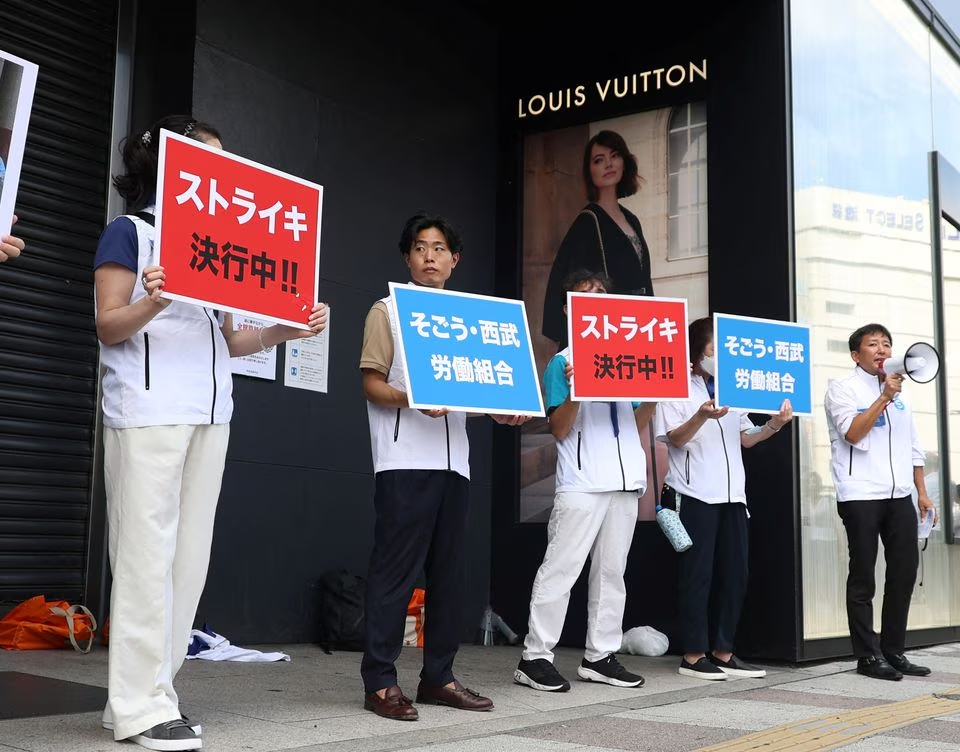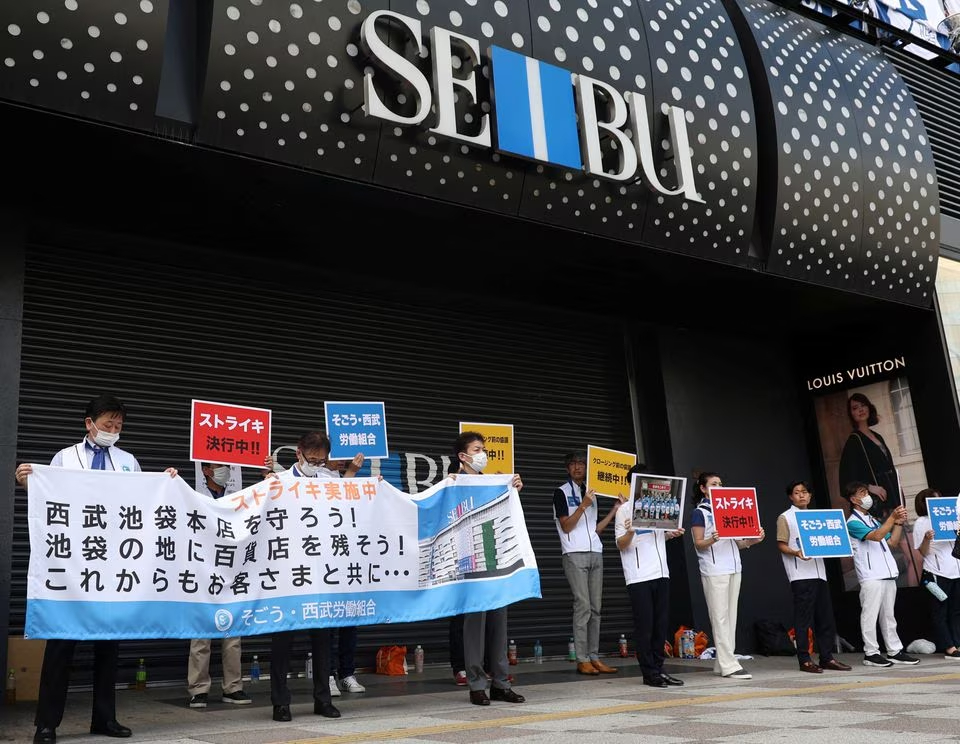TOKYO, August 31, 2023 – Unprecedented scenes unfolded in Tokyo today as workers at one of the city’s renowned department stores embarked on a strike in response to the contentious sale of their company, marking the first significant work stoppage in Japan in decades.
Approximately 900 employees at the esteemed Seibu store, an iconic fixture in the bustling Ikebukuro district, took to the picket lines after negotiations with management reached an impasse over the proposed sale of Sogo & Seibu, a subsidiary of Japanese retail powerhouse Seven & i, to U.S.-based investment firm Fortress Investment Group.
The striking workers, supported by their labor union, are demanding assurances of job security and business continuity amid concerns over reports indicating that discount electronics retailer Yodobashi Holdings intends to occupy nearly half of the store. This apprehension stems from fears that the potential inclusion of Yodobashi would compromise the unique identity and individual boutiques that define Seibu’s distinct shopping experience, a sentiment shared by critics including officials in the Ikebukuro district.
The sale, scheduled to be finalized on September 1, was confirmed by Seven & i, which revealed that the originally agreed-upon sale value of Sogo & Seibu, at 250 billion yen, had been discounted by 30 billion yen ($205 million). This adjustment came as Seven & i stressed the importance of Fortress prioritizing the continuation of Sogo & Seibu’s business operations and workforce retention. In a bid to facilitate the transaction, Seven & i will also absolve 91.6 billion yen of debt, over half of what it had lent to its subsidiary.
Fortress Investment Group responded in a statement, expressing its commitment to collaborate with Seven & i to ensure the stable management of Sogo & Seibu, while also detailing plans to invest more than 20 billion yen in partnership with Yodobashi to revamp the stores.
Strikes of this magnitude are exceedingly rare in Japan, a country characterized by harmonious wage and work condition negotiations. This extraordinary walkout, the first by a major Japanese department store in 61 years, emerged after months of arduous negotiations between Sogo & Seibu management and the workers’ union. It has materialized against the backdrop of a severe labor shortage in Japan.
Under the blistering summer sun, Seibu workers assembled outside the store in protest, receiving backing from various other labor unions distributing supportive flyers. Seven & i issued an apology for the disruption caused by the strike and pledged to continue discussions with the union. However, other Seibu and Sogo department stores operated normally.

Union leader Yasuhiro Teraoka lamented the outcome but acknowledged the challenging circumstances. “While I regret that we were unable to alter the outcome, it’s also undeniable that our business has been facing difficulties,” Teraoka stated during a press briefing following the sale announcement. He noted that the substantial visibility the strike garnered could be considered a significant achievement in itself.
The strike transpired amidst an extremely tight labor market in Japan. Despite major companies securing the most substantial wage increases in thirty years during spring labor negotiations, these gains have been eroded by a 41-year high in inflation, causing real wages to continue their decline.
Labor groups from competing department stores, such as Takashimaya and Isetan Mitsukoshi, rallied behind Sogo & Seibu’s workforce, underscoring the broader implications of the situation. Labor issues expert Professor Wakana Shuto from Rikkyo University commented on the encouragement other workers might derive from this case, highlighting the industry-wide challenges that Sogo & Seibu’s employees are confronting.
While the Seibu Ikebukuro store ranks as Japan’s third-largest department store in terms of sales, Sogo & Seibu itself has grappled with losses over the past four years.
For international funds eyeing opportunities to restructure venerable Japanese brands, this strike underscores potential obstacles. Tokyo-based corporate lawyer Stephen Givens stressed that the alignment of management and employees’ satisfaction with outcomes is critical for successful foreign acquisitions within Japan.
(1 USD = 145.92 JPY)
Disclaimer: The views, suggestions, and opinions expressed here are the sole responsibility of the experts. No Report Blitz journalist was involved in the writing and production of this article.

